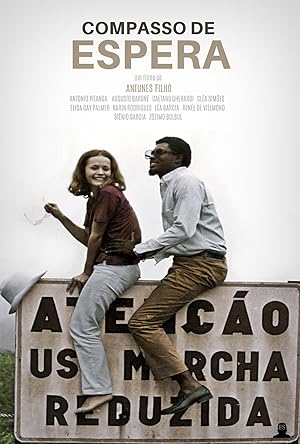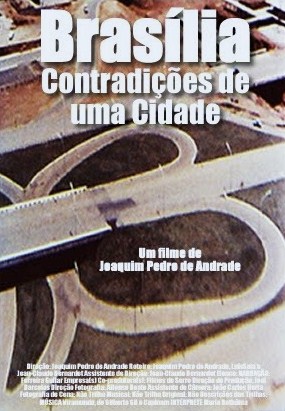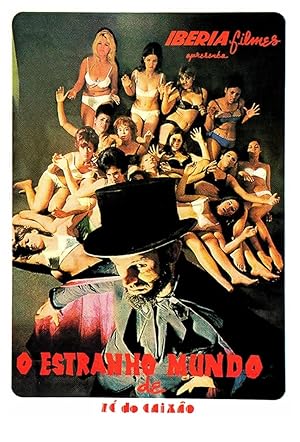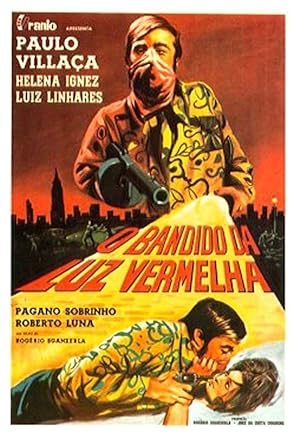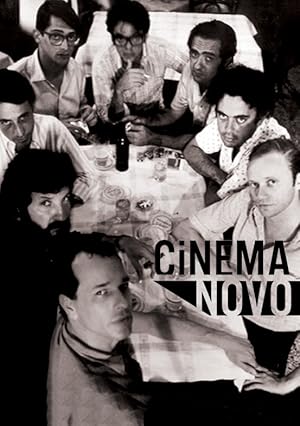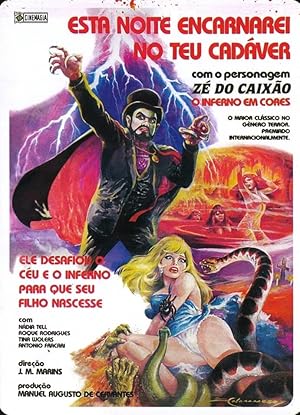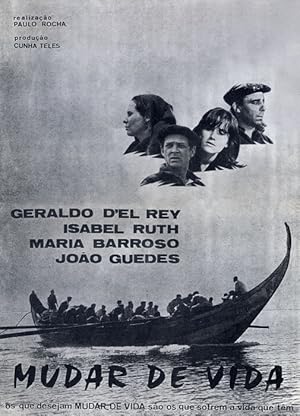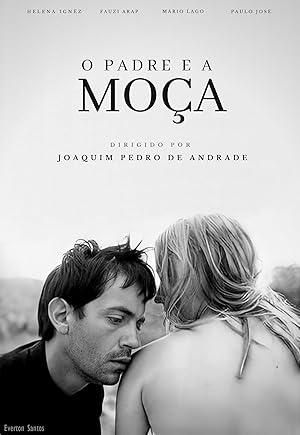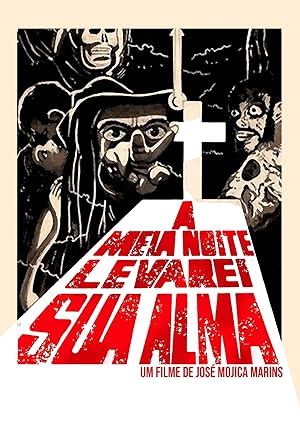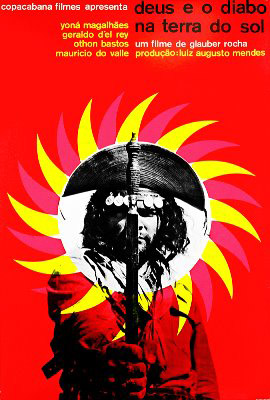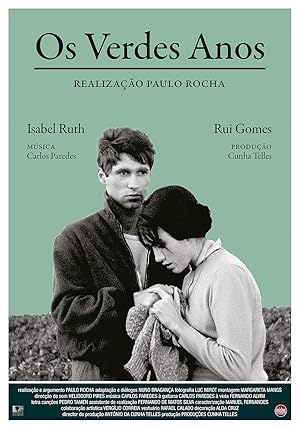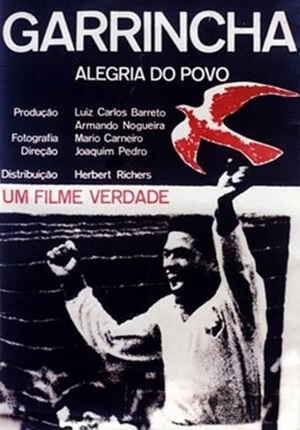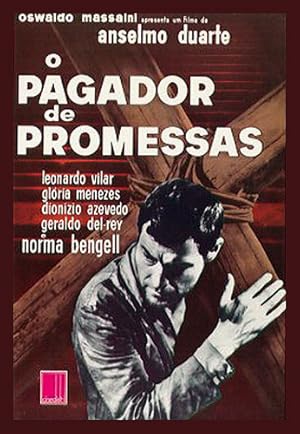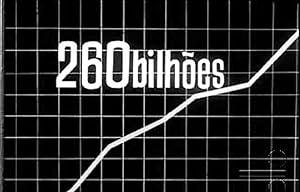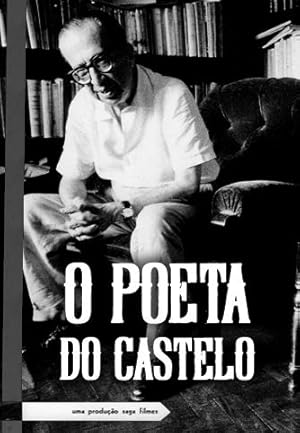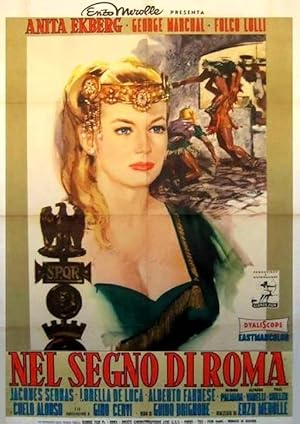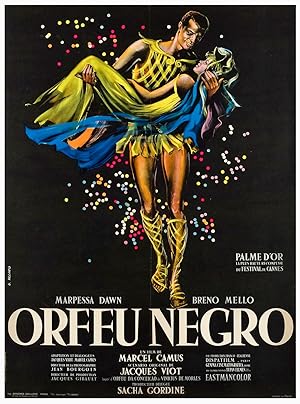Top Pt-Language Movies
You’re now browsing page 36, where our journey through Pt-language movies continues. If you’ve already encountered some outstanding titles on previous pages, now is the perfect time to dig deeper, uncovering more cinematic gems that highlight the richness of pt-language storytelling. Keep exploring and enjoy the ride!
Compasso de Espera (1969)
0
Jorge de Oliveira is an Afro-Brazilian poet who works in a publicity agency in São Paulo. Torn between his rich white lovers and his black family and friends, Jorge's situation serves as a springboard to a discussion about racial issues in Brazil.
Brasilia, Contradictions of a New City (1968)
0
In 1967, de Andrade was invited by the Italian company Olivetti to produce a documentary on the new Brazilian capital city of Brasília. Constructed during the latter half of the 1950s and founded in 1960, the city was part of an effort to populate Brazil’s vast interior region and was to be the embodiment of democratic urban planning, free from the class divisions and inequalities that characterize so many metropolises. Unsurprisingly, Brasília, Contradições de uma Cidade Nova (Brasília, Contradictions of a New City, 1968) revealed Brasília to be utopic only for the wealthy, replicating the same social problems present in every Brazilian
The Strange World of Coffin Joe (1968)
0
Zé do Caixão hosts this anthology of three short horror stories which feature a strange dollmaker, a necrophiliac balloon seller with a foot fetish, and a psychotic professor involved in sadistic rituals.
The Red Light Bandit (1968)
0
Born and raised in the misery of Brazilian slums, Jorge becomes a luxury house burglar in São Paulo and gets nicknamed "The Red Light Bandit" by the sensationalist press. In addition to wearing a red flashlight, he talks to his hostages in an irreverent tone and makes bold breakthroughs to later spend the money extravagantly. His world is the decadent neighbourhood of Boca do Lixo.
Improvised and Purposeful: Cinema Novo (1967)
0
Originally produced for German TV, Improvised and Purposeful is a firsthand look at the "Cinema Novo" movement (otherwise known as the 'Brazilian New Wave'). Director Joaquim Pedro de Andrade focuses on six Cinema Novo filmmakers working in Rio in 1967.
This Night I'll Possess Your Corpse (1967)
0
Zé do Caixão, the unholy undertaker, is back in town to continue his quest for the perfect woman, embarking on an even more brutal campaign of terror, aided and abetted by his hunchbacked assistant.
Change of Life (1967)
0
After completing his military service in the Angolan War of Independence, Adelino goes back to the Portuguese fishing village he calls home, only to find that the woman he loves has married his brother. Overcome by bitterness, he sets off to find work in the countryside where he meets Albertina, a free-spirited young woman who challenges him to change his life.
The Priest and the Girl (1966)
0
In a small town in Minas Gerais, the arrival of a young priest causes a commotion in the conservative atmosphere of the place, aggravated by the sudden attraction this priest feels for a beautiful girl. This forbidden love affair soon turns into an unbridled passion.
At Midnight I'll Take Your Soul (1964)
0
Zé do Caixão is an undertaker in a small Brazilian town, searching for the perfect woman to bear him a superior child. Unable to conceive with his wife, he kills her and sets out to find someone else.
Black God, White Devil (1964)
0
Wanted for killing his boss, Manuel flees with his wife Rosa to the sertão, the barren landscape of Northern Brazil. Thrust into a primordial violent region, Manuel and Rosa come under the influence and control of a series of frightening figures.
The Green Years (1963)
0
Nineteen-year-old Julio heads to Lisbon from the provinces and gets a job as a shoemaker for his uncle Raul. But when he meets Ilda, a confident young housemaid who becomes a regular shop visitor, his working-class values collide with the bourgeois trappings of modern life.
Garrincha: Joy of the People (1962)
0
Documentary about the most famous dribbler in Brazilian Soccer (some say in Soccer's history!) at the zenith of his career, showing classic scenes of 1958 and 1962 World Cup. Garrincha was a very original and talented player, having curved legs. Women and alcohol were his passion, and the cause of his later decadence. After a glorious career, he died in financial misery, forgotten.
The Given Word (1962)
0
Zé is a very poor man whose most prized possession is his donkey. When his donkey falls terminally ill, Zé makes a promise to Saint Bárbara: If his donkey recovers, he will carry a cross - like Jesus - all the way from his city to Saint Bárbara's church, in the state capital. Upon the recovery of his donkey, Zé leaves on his journey. He makes it to the church, but the priest refuses to accept the cross once he discovers the context of Zé's promise.
Condemned by Progress (1962)
0
The problematic of the railway lines of Rio de Janeiro with their lack of efficiency and waste of government budget are presented through examples and situations that happened in the early 1960's. The documentary also presents possibilities on how to solve such problems.
The Poet of the Castle (1959)
0
A 10-minute portrait of modernist poet and de Andrade’s godfather, Manuel Bandeira, is clear in its affection for it subject, though like many New-Waveish films of the time, depicts the modern urban landscape as an ominous and alienating force.
Black Orpheus (1959)
1
Young lovers Orfeu and Eurydice run through the favelas of Rio during Carnaval, on the lam from a hitman dressed like Death and Orfeu's vengeful fiancée Mira and passing between moments of fantasy and stark reality. This impressionistic retelling of the Greek legend of Orpheus and Eurydice introduced bossa nova to the world with its soundtrack by young Brazilian composers Luiz Bonfá and Antonio Carlos Jobim.
The Broken Star (1956)
0
A deputy sheriff defies local ranchers to investigate a Mexican's murder.
